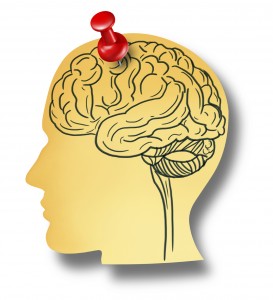
The Cognitive Biases Tricking Your Brain
I’ve often wondered why it’s so difficult to change popular attitudes and beliefs about addiction and recovery. But it really shouldn’t be a surprise, given the sheer number of cognitive biases involved.
If you’re unfamiliar with the term, a cognitive bias is a systematic error in thinking that affects our judgment and decision-making, almost at the perceptual level. As the article above explains, there are a hundred or so in the psychological literature. We’re unaware of our biases unless and until someone else points them out and provides us with convincing evidence.
The most common is one you’ve heard of: Confirmation bias. That’s our preference for new information that confirms our existing beliefs and attitudes (or at least doesn’t significantly conflict). Example: Someone grows up thinking of drug use as a crime, and drug users as criminals. Presented with the idea of addiction as a disease, it strikes them as excuse-making. Proposals for treatment may be interpreted as mollycoddling. Instead, they’re receptive to policies that favor arrest and incarceration — in other words, punishment.
Confirmation bias can be almost impossible to overcome. It’s a bit like presenting a legal case to a judge who’s already made it clear he’s going to rule against you. Good luck convincing him otherwise.
Then there’s attribution bias. Many Americans regard addiction as the result of some innate flaw in the individual’s character or personality– a flaw that’s extremely resistant to change. Their tendency is to reject the possibility of lasting recovery, and to view attempts to achieve it as a waste of time and resources.
Given those biases, how do you think they vote when it comes time to fund treatment and prevention?
Then there’s stereotyping, the tendency to view others as representatives of a class, usually an inferior one. “He’s a drug addict,” we’ll hear someone say. “You know what those people are like.” It’s a way to dehumanize something so as to make it easier to ignore.
Perversely, we all suffer from bias blind spots, meaning we’re far more likely to detect bias when it affects us than when it’s directed against other groups or social classes. It’s not even about decision-making — it’s a matter of how we perceive the situation. That’s why when fans of opposing teams view the same penalty call on video, both sides conclude the refs are biased against their team.
As a practical matter, it’s highly unlikely that we’ll ever come up with a way to eliminate cognitive bias. Instead, we’ll just have to remain alert, ready to deal with bias when we encounter it.
Including our own.










